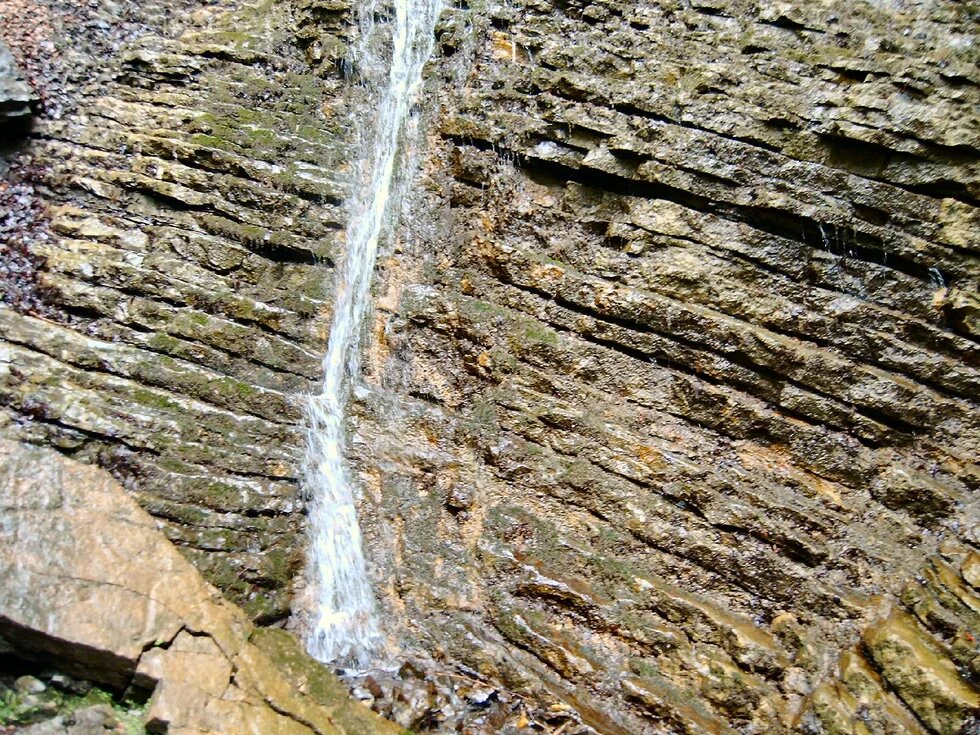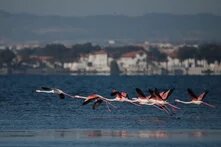
Geologists have traditionally divided the history of our planet into different geological epochs. The current epoch is the so-called Holocene, which started around 11,700 years ago. A crucial criterion for determining geological epochs are the deposits in rock strata. As researchers increasingly find human remains in these, Nobel Prize winner Paul Crutzen suggests that the Holocene should be declared over and the Anthropocene proclaimed instead.

However, there is still disagreement among scientists as to the exact starting date of the Anthropocene. Suggestions range from a very early dating of around 5000 B.C. to a late one at the time of the Industrial Revolution around 1800. A working group of the International Commission on Stratigraphy has been tasked with clarifying this question.
A redefinition of human-nature relations
The concept of the Anthropocene shows that the conventional understanding of the relationship between humans and nature no longer applies: There are no longer humans on the one hand and nature on the other. Instead, humans and nature influence and determine each other, with humans emerging from the diversity of environmental factors and becoming the main factor in the Anthropocene.
It comes therefore as no surprise that the debate around the ‚Anthropocene‘ has also brought forward the discussion on Rights of Nature (RoN).
After all, both concepts aim to rethink the relationship between humans and nature. With regard to RoN, we can distinguish between ecocentric and anthropocentric interpretations.
Nature as a living being
An ecocentric interpretation of the RoN implies a Copernican revolution replacing humans with nature at the center of our world views. In a sense, this may be seen as a reaction to the condition of the Anthropocene, with humans wishing to return their role of the main agent to nature. Nature can be understood as a living being, as intrinsically valuable or as an ancestor and relative to humans. In this capacity, nature is then given its own rights. Just like humans, nature or individual ecosystems become legal entities.
Such justification strategies are often inspired by non-Western world views. For example, Māori philosophy conceptualizes the world as a network of reciprocal relationships, responsibilities and duties. In contrast to Western worldviews, which often reduce the world to a collection of individual entities, the focus here is on a complex network of relationships.
Ecocentric arguments can take this network of relationships as a starting point in order to derive nature’s intrinsic value from the connection between humans and nature.
Granting rights
However, an anthropocentric understanding of the RoN, too, is possible: Therein, humans accepts their role in the Anthropocene as involuntary protagonists while trying to tame their own destructive power. To this end, they ‚grant‘ nature rights of its own, through which it can defend itself against human influence. Nature is thus empowered in court in order to be able to defend itself against human encroachment. An anthropocentric understanding of the RoN can, for instance, propose a new contract between humans and nature (as German lawyer Jens Kersten formulates in his work ‘The ecological basic law’) or the reinterpretation of property rights and their extension to ecosystems (as formulated by German philosopher Tilo Wesche).
In both cases – be it an ecocentric or an anthropocentric justification of the RoN – it is worth asking to what extent nature or individual ecosystems are transformed from moral objects into moral subjects. If nature is understood as a living being with its own will or at least its own interest, it can defend itself as a moral subject. The only remaining barrier is to translate its will or interest into a language understandable to humans. In the anthropocentric argument, nature is given its own rights on the basis of a contract or extended property rights. However, it continues to be represented by humans who defend it against other humans and their interests.
Translating or defending
While representation in an ecocentric paradigm primarily implies translation, in an anthropocentric paradigm it means the defense of nature by humans against other humans.
As soon as humans in the Anthropocene realize that they have involuntarily become the main agents, this requires an immediate reaction: they can either give nature back its place or at least limit themselves and their own influence vis-à-vis nature.
Thus, in the Anthropocene, the relationship between humans and nature must be redefined. As humans and nature are closely intertwined, a rethink is needed, either consisting of a new emphasis on nature, or of rules of self-restriction. Only this way can both aspects of the Anthropocene, humans and nature, continue to co-exist and face a shared, positive future.
Translated by Imke Horstmannshoff.
Links & Literature
- Jens Kersten, Das ökologische Grundgesetz (transl. "The ecological basic law"), pp. 19-25 [DE].
- Matthias Kramm, 2023, „Rechtsphilosophische Aspekte“, In: Rechte für Flüsse, Berge und Wälder, hrsg. durch Matthias Kramm, pp. 69-83 [DE].
- Tilo Wesche, 2023, Die Rechte der Natur: Vom nachhaltigen Eigentum (transl. "Rights of Nature: Sustainable Property"), pp. 174-195 [DE].



